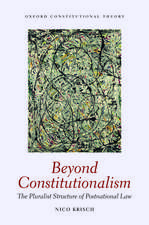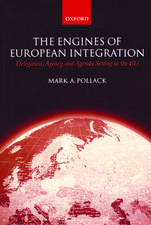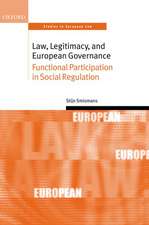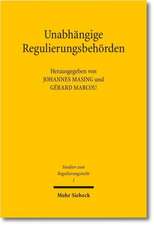Dilemmas of European Integration: The Ambiguities and Pitfalls of Integration by Stealth
Autor Giandomenico Majoneen Limba Engleză Paperback – 22 ian 2009
| Toate formatele și edițiile | Preț | Express |
|---|---|---|
| Paperback (1) | 302.59 lei 31-37 zile | |
| OUP OXFORD – 22 ian 2009 | 302.59 lei 31-37 zile | |
| Hardback (1) | 817.90 lei 31-37 zile | |
| OUP OXFORD – 24 mar 2005 | 817.90 lei 31-37 zile |
Preț: 302.59 lei
Preț vechi: 369.77 lei
-18% Nou
Puncte Express: 454
Preț estimativ în valută:
57.90€ • 60.61$ • 47.91£
57.90€ • 60.61$ • 47.91£
Carte tipărită la comandă
Livrare economică 26 martie-01 aprilie
Preluare comenzi: 021 569.72.76
Specificații
ISBN-13: 9780199556809
ISBN-10: 0199556806
Pagini: 272
Ilustrații: 1
Dimensiuni: 159 x 234 x 16 mm
Greutate: 0.41 kg
Editura: OUP OXFORD
Colecția OUP Oxford
Locul publicării:Oxford, United Kingdom
ISBN-10: 0199556806
Pagini: 272
Ilustrații: 1
Dimensiuni: 159 x 234 x 16 mm
Greutate: 0.41 kg
Editura: OUP OXFORD
Colecția OUP Oxford
Locul publicării:Oxford, United Kingdom
Recenzii
Review from previous edition Giandomenico Majone's Dilemmas of European Integration: The Ambiguities and Pitfalls of Integration by Stealth represents a major statement of academic theory by a leading scholar of European integration. Clearly written and enjoyable to read, this monograph offers a thought provoking analysis of some of the pressing constitutional problems facing the European Union, and proposes a challenging thesis about the best way of resolving them... Majone's book is an invitation to rediscover why European integration is such a rewarding field of study.
Majone's intellectual journey has resulted in this book having strengths which make it unsurpassed as a point of first reference for all students, teachers and policy-makers interested in the European Union. It combines Majone's unrivalled insights into the nature of the policy-making process and his eye for detail with his encyclopaedic knowledge of the European Union, and an increasing eagerness to engage, albeit in a highly practical way, with broader questions of political theory and justification.
Majone's intellectual journey has resulted in this book having strengths which make it unsurpassed as a point of first reference for all students, teachers and policy-makers interested in the European Union. It combines Majone's unrivalled insights into the nature of the policy-making process and his eye for detail with his encyclopaedic knowledge of the European Union, and an increasing eagerness to engage, albeit in a highly practical way, with broader questions of political theory and justification.
Notă biografică
Giandomenico Majone was Professor of Public Policy at the European University Institute in Florence, Italy from 1987 to 1995. Before joining EUI, he held teaching/research positions at a number of European and American universities. After leaving EUI, he has been a Visiting Professor at the Max Planck Institute for the Study of Society in Cologne, Germany; at Nuffield College, Oxford; at the European Institute of Public Administration, Maastricht; at the Center for West European Studies, University of Pittsburgh; at the Department of Government, London School of Economics; at the National University of Mexico, and at the Colegio de México.






















